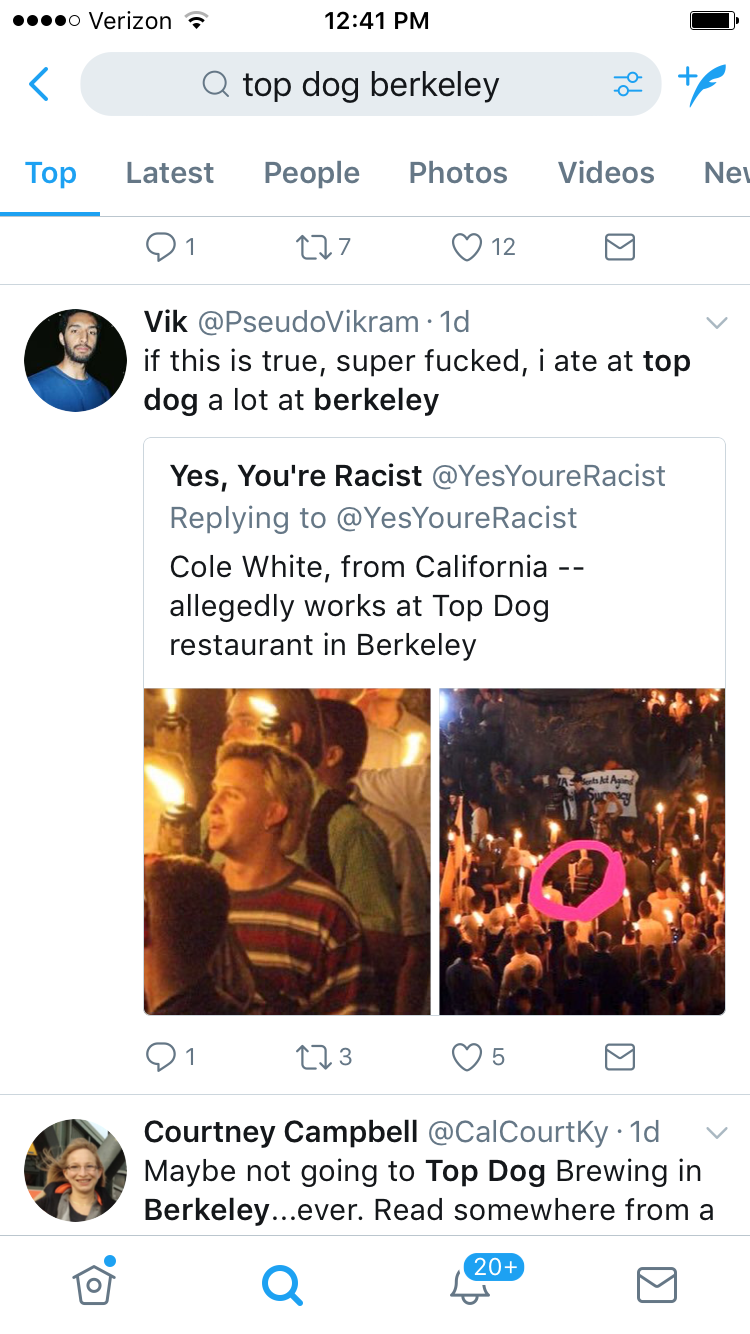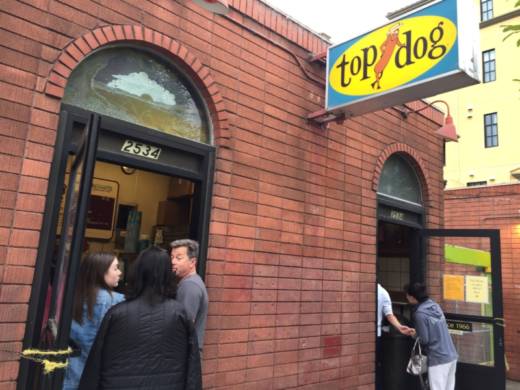After reading the sign that Cole no longer worked there, customer Brandon Hoffman said punishing the owner at this point didn’t make sense.
“We live in America, where everyone has freedom of speech and thought,” Hoffman said. “Obviously white supremacy is not something I stand by, and what happened in Charlottesville is out of the manager’s control and he has done everything he could to try and solve the problem. So there shouldn’t be any other negative retaliation to go towards him, right?”
White has been involved in previous white supremacist rallies that turned violent, according to Emily Marshall, who says she was assaulted by him at a Berkeley rally in April after she had been punched in the face by Nathan Damigo, a leading white nationalist in California.
“I looked this guy in the eye as I was trying to get up,” she told KQED, “and he ran up to me and grabbed me by the shoulders and kneed me in the forehead at least four times.”
That would move this away from a free speech question. And the backlash for Top Dog may not end with Cole White no longer working there. The publication Berkeleyside raised questions about Top Dog owner Richard Riemann’s association with a website that supports pro-Confederacy views.
Brandon Hoffman’s sister, Cheyenne, said White’s departure made her wonder what constitutes free speech.
“You can believe what you want to believe. But it’s also like at what point … how far can you share your own opinion without other people being offended by it, and what’s the proper way of sharing your opinion? And some people don’t understand that some people share it in a way that’s not acceptable and then they get wronged for that. But then certain times it’s OK because it’s like that’s wrong,” she said. “So I can believe what I want to believe, but I’m not forcing it on other people, you know?”
Another Top Dog regular, John Thomas, who’s studying applied mathematics at UC Berkeley, said both Cole and the owner, if he fired him, were within their rights.
“Personally, I think one’s individual actions in your personal life shouldn’t affect your employment. Simply just because it’s a personal freedom thing. I don’t agree with anything of his political beliefs. I’m on the opposite end of the spectrum entirely,” Thomas said.
“But I think if you want to hold extreme political beliefs in either direction, you’re welcome to hold them as long as it doesn’t impact others or your professional life.
“But it’s also the right of a company to fire someone whose beliefs they don’t agree with,” Thomas said. “He has his right to express his personal beliefs and the company has the right to fire him for them.”
Thomas didn’t think that someone getting fired for his or her political stance would lead to more fear about expressing one’s self.
“I don’t think it’s a huge concern. Simply because companies expect a certain level of professionalism essentially if you are associating yourself with them. He, while he was there, in no way associated himself with the company,” Thomas said.
The debate over being fired for speaking out about political or cultural beliefs was in the spotlight last week after Google fired employee James Damore. KQED’s Tonya Mosely weighed in on the controversy on NPR’s Weekend All Things Considered.

